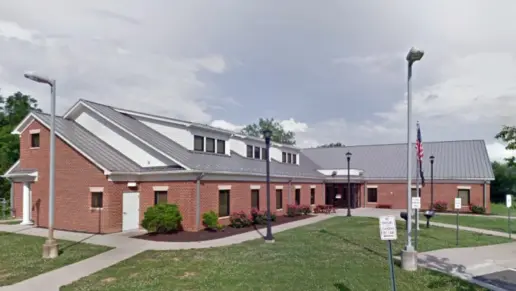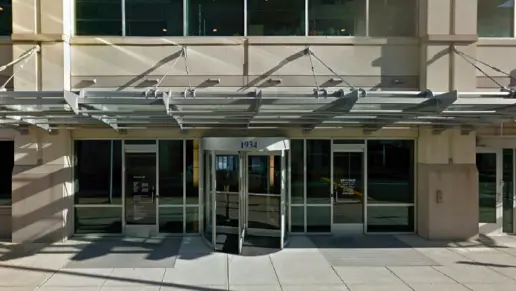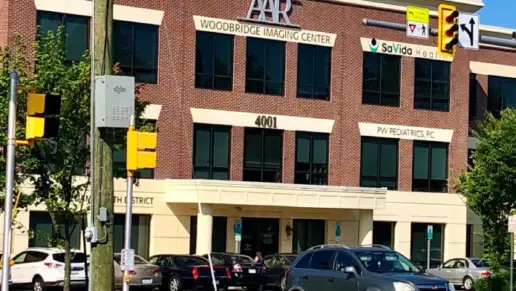It was very effective although I wasn't able to complete the program. I was there for 77 days out of the 90 day program. I'd like to come back because I'm still struggling. Is there anyway that I can get more help?
About Rubicon – Women’s Treatment Community
Women's Residential Treatment Center, formerly the Rubicon Women’s Treatment Community, is a private alcohol and drug rehab in Richmond, Virginia. The center is part of the Richmond Behavioral Health Authority and offers medical detox, inpatient programs, and aftercare support for young adults and adults. Specialized services are available for pregnant and postpartum women.
The detox services at Women’s Residential Treatment Center assist the patient to comfortably remove the substances from their body while prioritizing safety and comfort. Patients are monitored 24/7 and may receive medication, which may include FDA approved methadone and buprenorphine to support the process.
Women’s Residential Treatment Center offers an inpatient treatment program for adults for short and long term stays. Treatment includes a dual diagnosis mental health assessment, treatment planning, and evidence based therapies to treat addiction and mental health conditions. Therapies include motivational interviewing, individual and group counseling, psychoeducation, life skills training, trauma therapy, and relapse prevention. The center offers beds for their resident’s children to stay with them.
The outpatient clinic treats addiction and/or other co-occurring conditions. The program includes a mental health assessment and individualized treatment plan, individual and group therapy, psychoeducation, relapse prevention support and planning, and case management support. Sessions are held several days per week, depending upon each patient’s circumstances.
Prior to discharge the support team provides a comprehensive aftercare plan devised with the patient. Typically, the plan may include detailed relapse prevention activities, outpatient support groups, and follow up appointments with their counselor.
Women’s Residential Treatment Center accepts Medicare, most commercial insurance plans, and self pay. Please check with your insurance provider, such as Aetna, Beacon, BlueCross/BlueShield, Cigna, Humana, and Optum, for coverage and out of network benefits. Sliding scale, financial aid, and state funding options are also available. No one will be refused services due to an inability to pay.
Latest Reviews
Rehab Score
Other Forms of Payment
Private insurance refers to any kind of healthcare coverage that isn't from the state or federal government. This includes individual and family plans offered by an employer or purchased from the Insurance Marketplace. Every plan will have different requirements and out of pocket costs so be sure to get the full details before you start treatment.
Self-pay involves paying for treatment out of your own pocket. You can use savings or credit, get a personal loan, or receive help from family and friends to fund your treatment. If you don't have insurance or your insurance plan doesn't cover a specific program, self-pay can help ensure you still get the care you need.
Financial aid can take many forms. Centers may have grants or scholarships available to clients who meet eligibility requirements. Programs that receive SAMHSA grants may have financial aid available for those who need treatment as well. Grants and scholarships can help you pai for treatment without having to repay.
Medicaid is a state based program that helps lower-income individuals and families pay for healthcare. Medicaid covers addiction treatment so those enrolled can use their coverage to pay for rehab. When a program accepts Medicaid the client often pays very little or nothing out of their own pocket.
Addiction Treatments
Levels of Care
Treatments
The goal of treatment for alcoholism is abstinence. Those with poor social support, poor motivation, or psychiatric disorders tend to relapse within a few years of treatment. For these people, success is measured by longer periods of abstinence, reduced use of alcohol, better health, and improved social functioning. Recovery and Maintenance are usually based on 12 step programs and AA meetings.
When you enroll in drug rehab in Virginia, a treatment plan is designed by professional staff in order to help you overcome drug addiction and modify addictive behaviors. This may include evidence-based treatments, group and individual therapy, and relapse prevention.
Many of those suffering from addiction also suffer from mental or emotional illnesses like schizophrenia, bipolar disorder, depression, or anxiety disorders. Rehab and other substance abuse facilities treating those with a dual diagnosis or co-occurring disorder administer psychiatric treatment to address the person's mental health issue in addition to drug and alcohol rehabilitation.
Opioid rehabs specialize in supporting those recovering from opioid addiction. They treat those suffering from addiction to illegal opioids like heroin, as well as prescription drugs like oxycodone. These centers typically combine both physical as well as mental and emotional support to help stop addiction. Physical support often includes medical detox and subsequent medical support (including medication), and mental support includes in-depth therapy to address the underlying causes of addiction.
Substance rehabs focus on helping individuals recover from substance abuse, including alcohol and drug addiction (both illegal and prescription drugs). They often include the opportunity to engage in both individual as well as group therapy.
Programs


Clinical Services
Cognitive Behavioral Therapy (CBT) is a therapy modality that focuses on the relationship between one's thoughts, feelings, and behaviors. It is used to establish and allow for healthy responses to thoughts and feelings (instead of unhealthy responses, like using drugs or alcohol). CBT has been proven effective for recovering addicts of all kinds, and is used to strengthen a patient's own self-awareness and ability to self-regulate. CBT allows individuals to monitor their own emotional state, become more adept at communicating with others, and manage stress without needing to engage in substance abuse.
In individual therapy, a patient meets one-on-one with a trained psychologist or counselor. Therapy is a pivotal part of effective substance abuse treatment, as it often covers root causes of addiction, including challenges faced by the patient in their social, family, and work/school life.
Trauma therapy addresses traumatic incidents from a client's past that are likely affecting their present-day experience. Trauma is often one of the primary triggers and potential causes of addiction, and can stem from child sexual abuse, domestic violence, having a parent with a mental illness, losing one or both parents at a young age, teenage or adult sexual assault, or any number of other factors. The purpose of trauma therapy is to allow a patient to process trauma and move through and past it, with the help of trained and compassionate mental health professionals.
Contact Information
2825 Rady Street
Richmond, VA 23222


